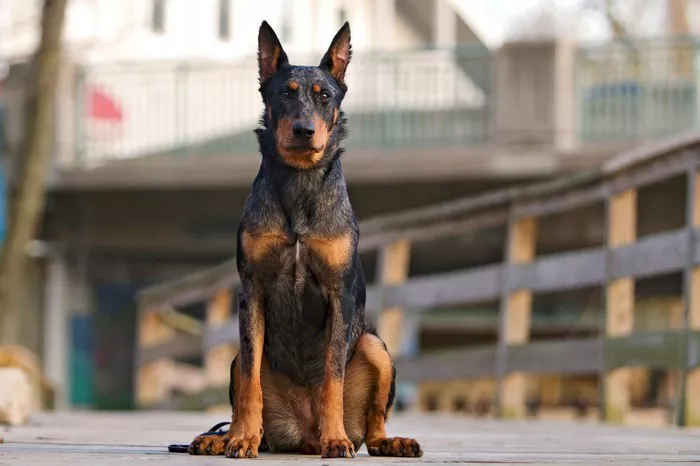In a poignant ceremony on Wednesday, the Indian Army honored Kent, a six-year-old Labrador from the 21 Army Dog Unit, with a posthumous Presidential gallantry award. Kent’s bravery during an anti-terror operation in Jammu and Kashmir has been recognized as a testament to the vital role canine soldiers play in the armed forces.
Kent, who was deeply embedded in the ongoing fight against terrorism, met her end while courageously shielding her handler during a high-stakes operation in September of the previous year. The operation, known as ‘Operation Sujaligala,’ saw Kent lead her human counterparts to a group of terrorists in Rajouri. Despite heavy gunfire, Kent charged ahead to engage the militants, a heroic act that ultimately cost her life.
General Upendra Dwivedi, the Northern Army Commander at the time of the operation and now the Chief of Army Staff, recounted Kent’s bravery. “She attacked the terrorist by moving ahead first,” he stated. The confrontation resulted in the death of two terrorists and one Army soldier, while three additional security personnel sustained injuries in the encounter.
Kent’s contributions, along with those of 38 other soldiers, were formally recognized with Mention-in-Despatches, a prestigious honor awarded for acts of gallantry. Her final send-off was marked by a ceremonial tribute, with her body draped in the Indian tricolor and a wreath laid in her honor.
Kent’s service began with her first deployment on 14 November 2022, during an operation in Poonch. Her posthumous recognition places her among other valiant canine soldiers who have earned accolades for their bravery. Notably, Mansi, a Labrador who fell in 2015, was the first canine to receive a posthumous war honor. Axel, a Belgian Malinois, also received similar recognition in 2022 after sacrificing her life in a Kashmir operation.
The role of canine soldiers has been pivotal in various military operations. For instance, Dino, another Labrador, played a crucial role in investigating the Nagrota Army base attack by helping trace the route taken by the attackers.
Historically, the Indian Army faced criticism for its practice of euthanizing retired canine soldiers unless they had been awarded a gallantry medal. This practice led to public outcry and a 2016 Delhi High Court ruling, which mandated the formulation of a policy for the rehabilitation of retired dogs. In response, the Army established a retirement home in Meerut to care for these retired canine veterans.
In India, adopting a retired Army dog remains a complex process due to stringent regulations. In contrast, the United States has a more established adoption program for its retired military canines. The Indian system, however, still lacks a comprehensive approach to post-service care for these animals.
Many retired Army dogs are often placed in animal shelters where they may face health issues stemming from their years of service. The challenges of adopting senior dogs in India highlight the broader issue of animal welfare, where older animals are frequently overlooked in favor of younger pets.
An animal activist noted, “In India, the concept of animals as companions is still developing. Many people view animals more as status symbols rather than as living beings deserving of lifelong care. This attitude affects the adoption rates, especially for older dogs.”
Kent’s bravery and sacrifice underscore the critical contributions of canine soldiers and the evolving recognition of their service and sacrifice in the Indian Armed Forces.


